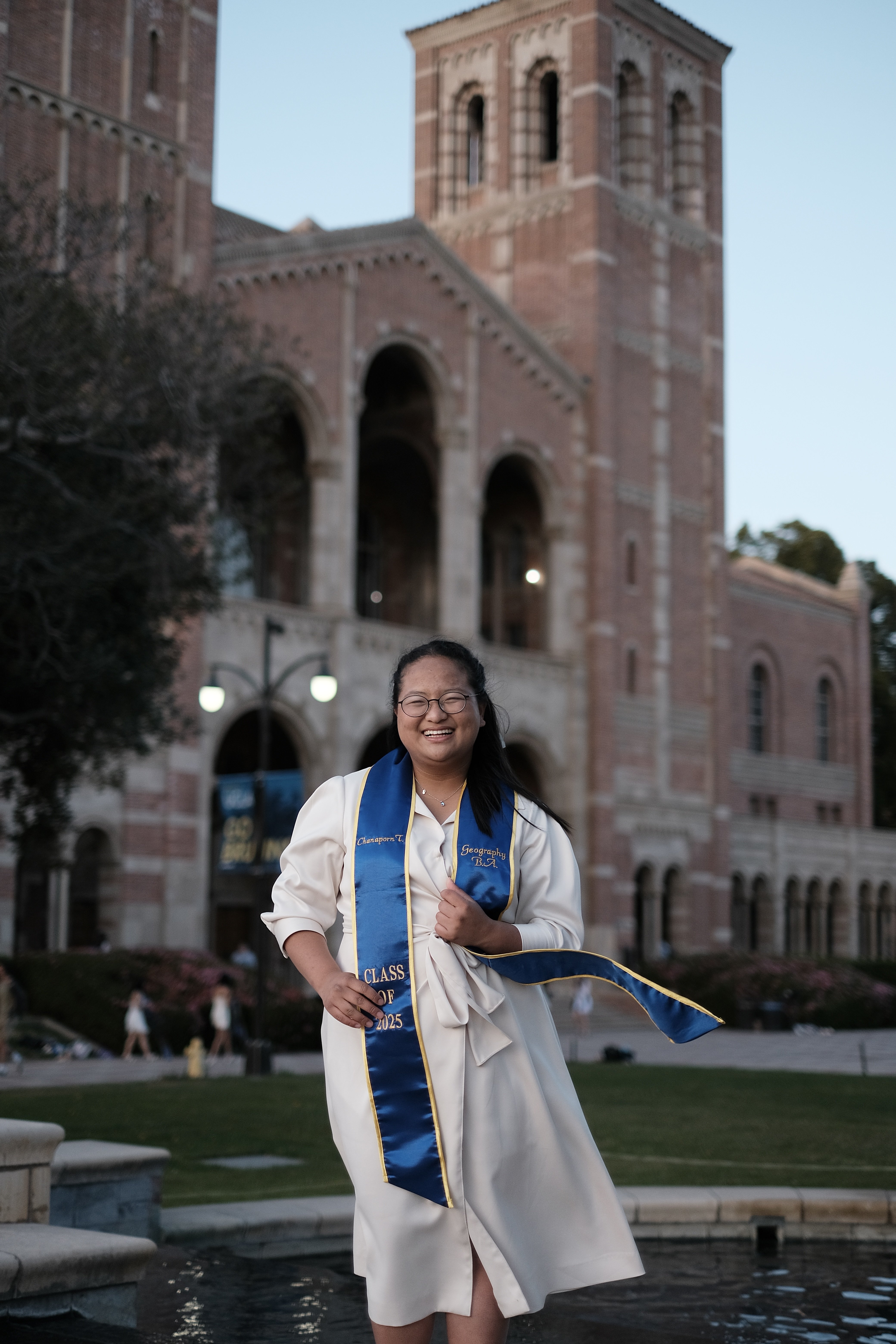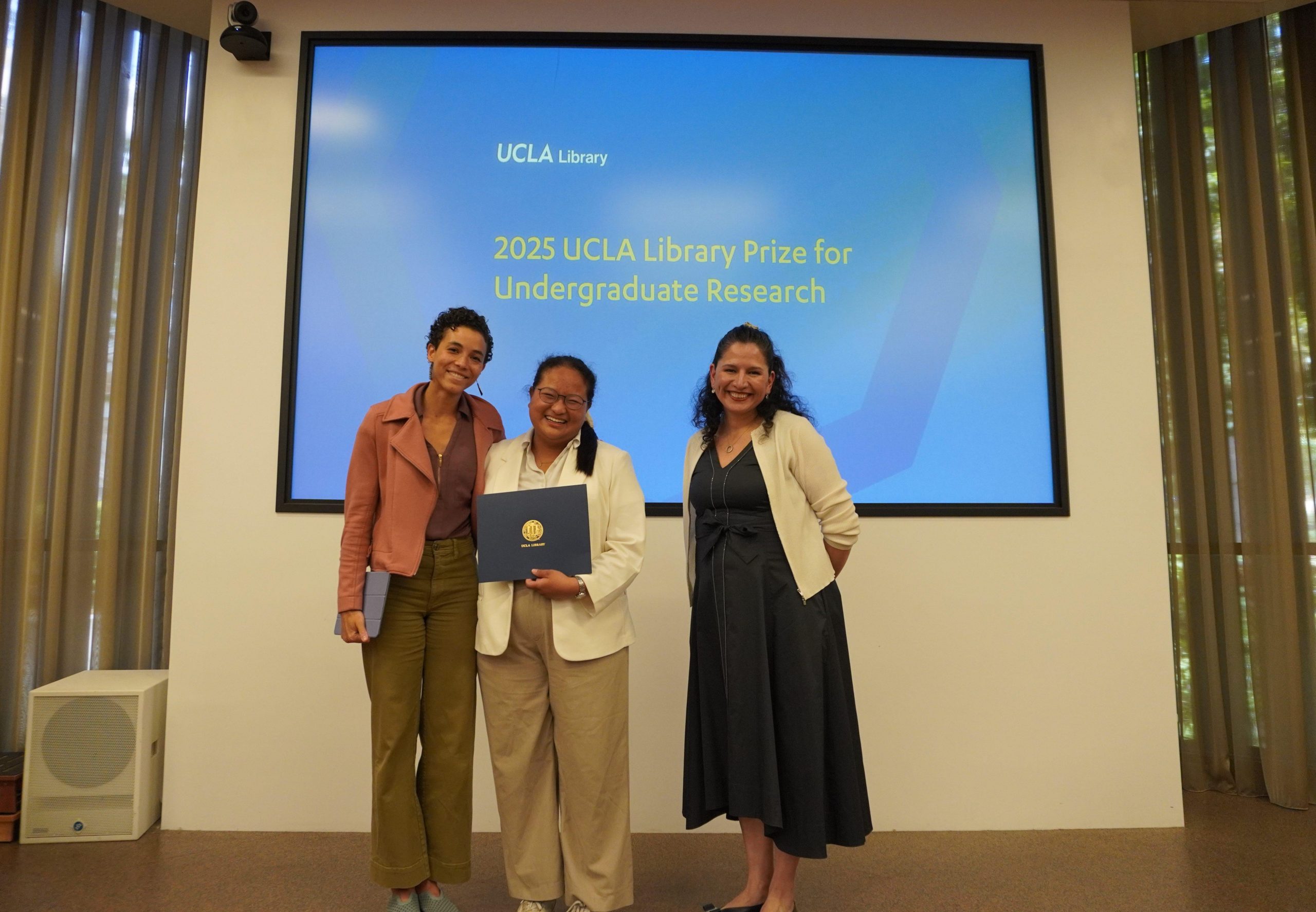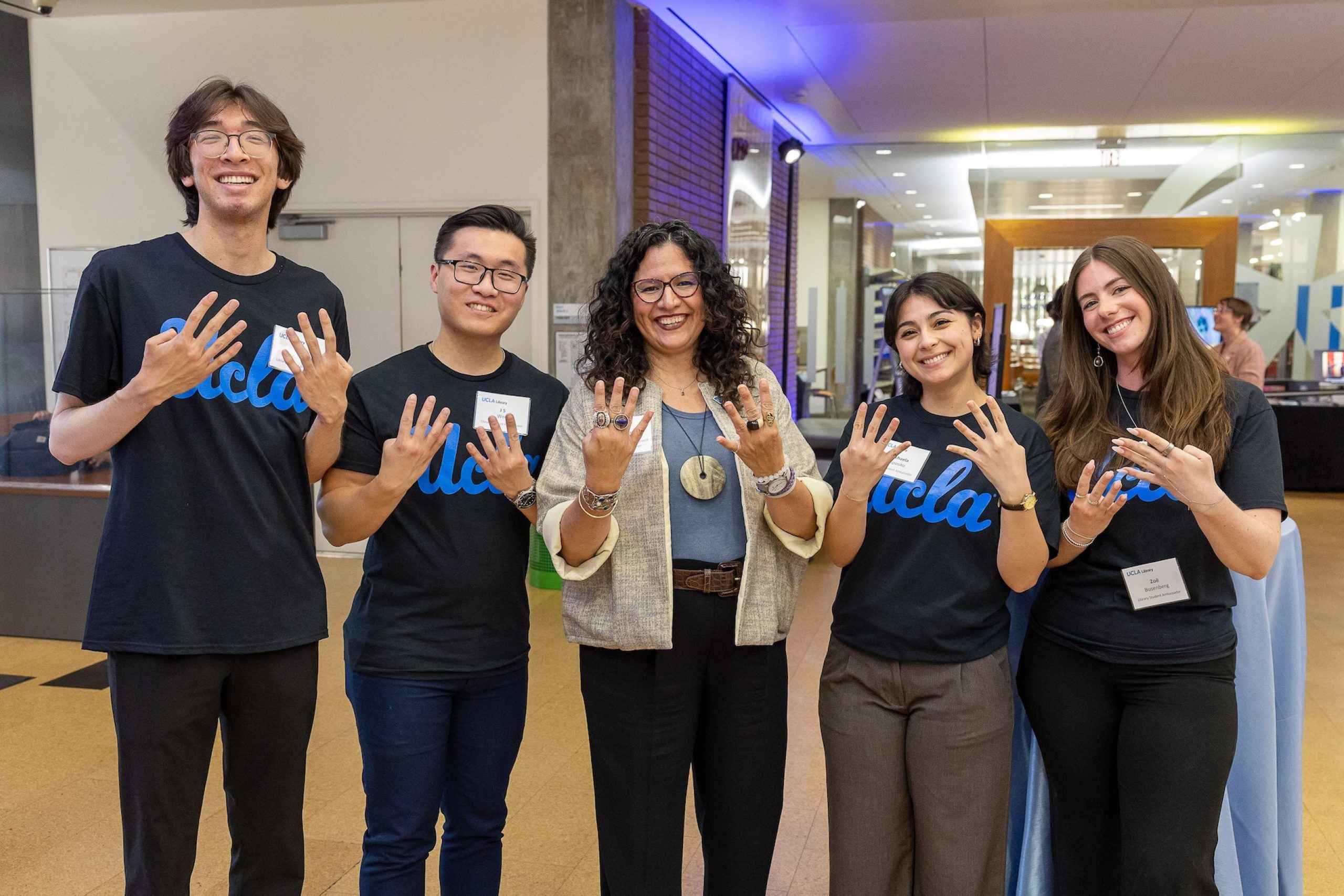More Information
Parcel lot sizes, privatization of green spaces and park access in affluent areas: what began as a 10-week class project for UCLA geography major Chanaporn Tohsuwanwanich culminated one year later with first prize in the Arts, Humanities and Social Sciences category at the 2025 UCLA Library Undergraduate Research Prize Ceremony.
The UCLA Library Prize honors excellence in undergraduate research and accepts submissions across nine academic project categories. Drawing from multiple disciplines, the winning projects are recognized for their use of Library resources and made publicly available through the University of California’s eScholarship(opens in a new tab) open access platform.
Chanaporn’s winning project, Gatekeeping Green Space: Minimum Lot Size Requirements, Private Lands, and Public Park Provision in Beverly Hills, Los Angeles County(opens in a new tab), examined how affluent Beverly Hills neighborhoods implement restrictive land-use policies that elevate property values for residents while perpetuating exclusivity by limiting access to green spaces. Through spatial analysis and ethnographic observation, the study found that these policies not only reduce the availability of public parks but also reinforce socio-economic disparities, highlighting the need for policy reforms that address these inequities.

Her research first began to take shape her junior year, when she enrolled in Geography 187: Research and Writing in Human Geography, taught by Kaily Heitz, assistant professor of geography. From there, the project continued to develop as an independent research study under Dr. Heitz’s guidance.
Throughout the project, Chanaporn — known as New to her friends — drew heavily on Library resources, browsing the stacks, accessing articles and subscriptions through Library databases and requesting specialized texts through interlibrary loan. Using strategies and tools gained from Library instruction, she conducted advanced searches, managed citations and generated bibliographies.
Undertaking a mixed-methods research approach, New also incorporated quantitative research through data collection and mapping, along with qualitative and archival research, reviewing recordings and minutes of city council meetings, and conducting fieldwork in public parks.
New felt comfortable with quantitative methods, but gained additional perspective from Heitz, whose expertise lies in theory and qualitative human geography. With Heitz’s guidance, New was able to strengthen her interpretive skills, applying qualitative methods that could add meaning and story to why patterns exist.
“Professor Heitz filled in that gap for me — she gave me a lot of lenses to look at things differently," said New. “How can you explain this phenomenon that is happening, and what you see in your field to the world?” Reflecting on Heitz’s mentorship, New said, “Sometimes you doubt yourself, your ability. I feel like she's the one who actually pushed me through and believed in me in the moment that I didn’t even believe in myself. It is one of the best experiences I've had working with an advisor, ever.”
Heitz was herself new to UCLA, but connected early on with librarian Maggie Tarmey, whose collaboration Heitz found invaluable, both as an instructor and researcher. As the librarian for maps, geography and economics, Tarmey is passionate about engaging with students and faculty and advancing research through instruction, reference services and outreach.
Tarmey led an instruction session on advanced search strategies during Heitz’s class, and “It was eye-opening,” said New. “Not a lot of students know how to use other techniques, like searching terms or different combinations to search for literature.”
Collaborating with faculty and watching a student’s research evolve is gratifying for Tarmey, who noted, “Over time, their questions become more detailed, the quality of their in-progress work has greater depth and they’re able to show more high-level research strategies.”
I hope by engaging with Library materials it can be a spark for a student to get excited about research. The Library is an underutilized resource on campus. That's what I tell students; talk to your librarians, because often they know more about the resources available to you than I do.
Tarmey and Heitz encourage students to follow their interests and find the threads that inspire them. “When they can chase their own curiosity and find excitement in their research,” said Tarmey, “it shows in their finished product.” Heitz added, “I hope by engaging with Library materials it can be a spark for a student to get excited about research. The Library is an underutilized resource on campus,” she said. “That's what I tell students; talk to your librarians, because often they know more about the resources available to you than I do.”
During the final stages of the project, New took Heitz’s advice and sought help from Tarmey with keyword refinement. Tarmey not only read the paper, but recommended New submit it for the Library Prize. Said Tarmey, “This is the type of work that can lead to real, actionable change in our world — research driven by an authentic desire to create a better future.”
New is currently pursuing a master’s in urban planning at NYU, with aspirations to become a professor and policy researcher. “I feel like my research at UCLA would not have been possible without Library support, especially with the access to publications and journals," she said. “I would not have been able to write those papers on my own without materials or without prior knowledge that people accumulated, and that access has been through UCLA Library.”
---
Hero image caption: Dr. Kaily Heitz (left), Chanaporn "New" Tohsuwanwanich, Norman and Aremena Powell University Librarian Athena N. Jackson; Hero image credit: Joelle Tran

